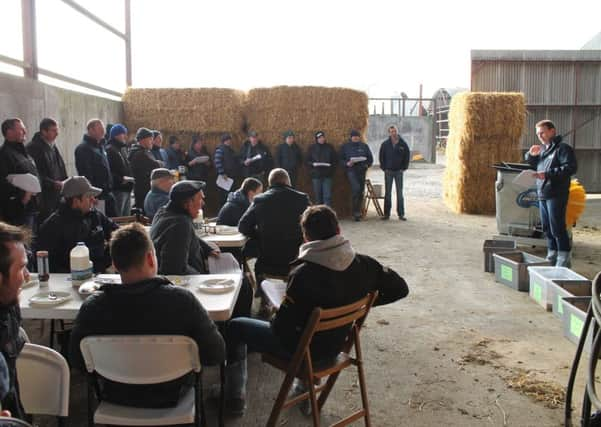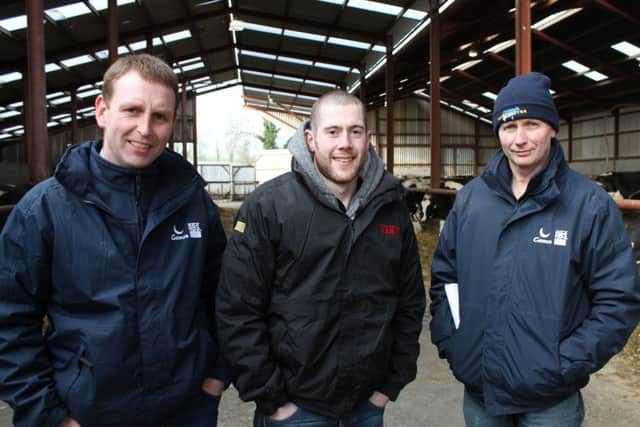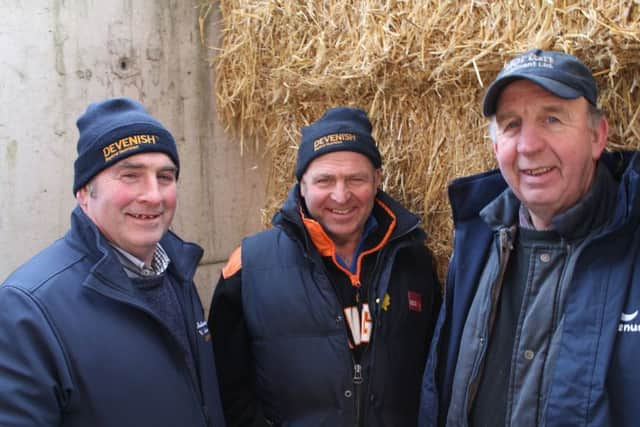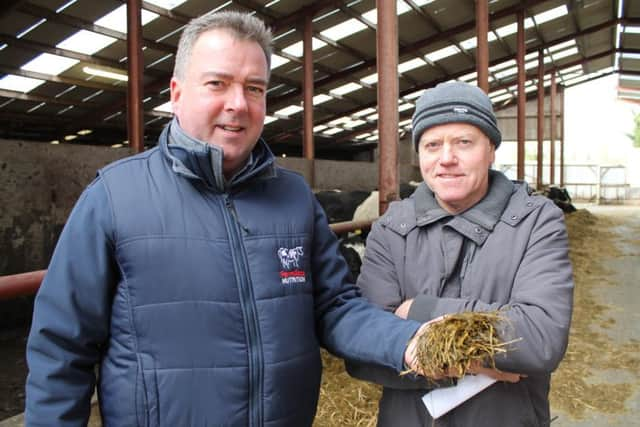Increased milk yield, better feed efficiency and more quality calves


These were just some of the advantages that encouraged a group of farmers to attend an RMS (Reproductive Management System) open day on the farm of Norman and James Morton, Armagh.
James Woods RMS manager for Genus ABS explained: “The recent volatility in milk price and the prospect that this could occur again in the future has encouraged many dairy farmers to examine their enterprise in even more detail to ascertain where efficiencies can be made and which might be most effective.
Advertisement
Hide AdAdvertisement
Hide Ad“One of the areas that has potential for improvement is fertility. The success of RMS in improving this aspect has meant that we have had, not only an increase in the number of farmers joining RMS, but also numerous enquiries for details of the system. Thus we decided to have an open day to facilitate these farmers and provide all of the detail.”


James went on to explain why fertility can be difficult to improve in the modern dairy herd.
He said: “Research statistics show that, in the modern dairy herd, 55% of heats last eight hours or less, while 50% have five or fewer mounts and 60% of heats occur at night. It is quite normal for 15 to 25 % of cows that are cycling to fail to express heat at any one time ie. silent heats. In view of these statistics it is very difficult for a farm with a high workload to be completely on top of heat detection.”
With over 25,000 cows now on the RMS program in Northern Ireland James detailed why local farmers have employed this program.
Advertisement
Hide AdAdvertisement
Hide AdHe said: “Ultimately our customers continue to strive for improvement within their own business and there is a significant financial return for investing in improved fertility and greater pregnancy generation – a return that far outweighs the cost of the service.”


RMS provides a highly skilled technician, using chalk based heat detection, sorting and serving the cows with all data recorded on computer. The sole focus is on improving heat detection and getting cows in calf more quickly.
The resultant increase in fertility leads to many more advantages in the herd. The one that is immediately obvious is the increased milk sales per cow per year. Getting cows in calf more quickly means there is a higher proportion of fresh calved cows in the herd and fewer stale milkers.
Better feed efficiency is a very welcome result – cows in early lactation use feed more efficiently leading to more cost-effective milk production.
Advertisement
Hide AdAdvertisement
Hide AdThe increased fertility results in more calvings and the resultant calves are better performing animals due to the fact that on RMS the sires are specifically selected for each individual cow. These high performers can join the herd or be sold at a premium price. With more cows getting in calf fewer will be culled.


The data collected and its detailed analysis allows for continual monitoring of herd performance enabling the farmer to make informed decisions more quickly and Genus ABS to provide a detailed technical advice package. It is also a valuable information resource for everyone involved in the enterprise eg. vet, nutritionist, scanning technician, financial adviser etc.
Aidan Fox, Livestock Scanning Services highlighted the importance of having up to date information to make quicker and more proactive management decisions.
Aidan commented: “Key to improving fertility is having accurate paperwork. Recording calving dates and service dates helps me to understand where a cow is in her breeding cycle. I can give more accurate feedback and the farmer has more control of his dairy herd.”
Advertisement
Hide AdAdvertisement
Hide AdGareth Anderson of FarmGate Nutrition explained to farmers some of the key areas of nutrition that were important in improving pregnancy rates. He described the “conception management steps” that formed part of the “classic 365 day cow cycle”.


These management steps included:
r Consistency of the diet presented to cows, with particular focus on changing the diets as few times as possible.
r Managing feed space, especially in close up dry cows and early lactation cows. This would maximise dry matter intake and lead to less metabolic disorders and ketosis.
r Inclusion of micro nutrients such as live yeast and glycerine in the total mixed ration of dry cows and early lactation cows to reduce the negative effects of acidosis and maximise energy intakes.
Advertisement
Hide AdAdvertisement
Hide Adr Regular forage mineral analysis and feeding a balanced mineral supplement that addressed any deficiencies in the forage analysis.
r Monthly focus on milk recordings, with particular attention to milk protein in early lactation cows and heifers.


Implementation of these management steps in conjunction with RMS had led to significant improvements in fertility figures of many Northern Ireland herds.
For more information on the RMS system contact your Genus rep or phone the office on 028 3833 1451.
Gareth Anderson can be contacted on Tel: 078 9486 5975.